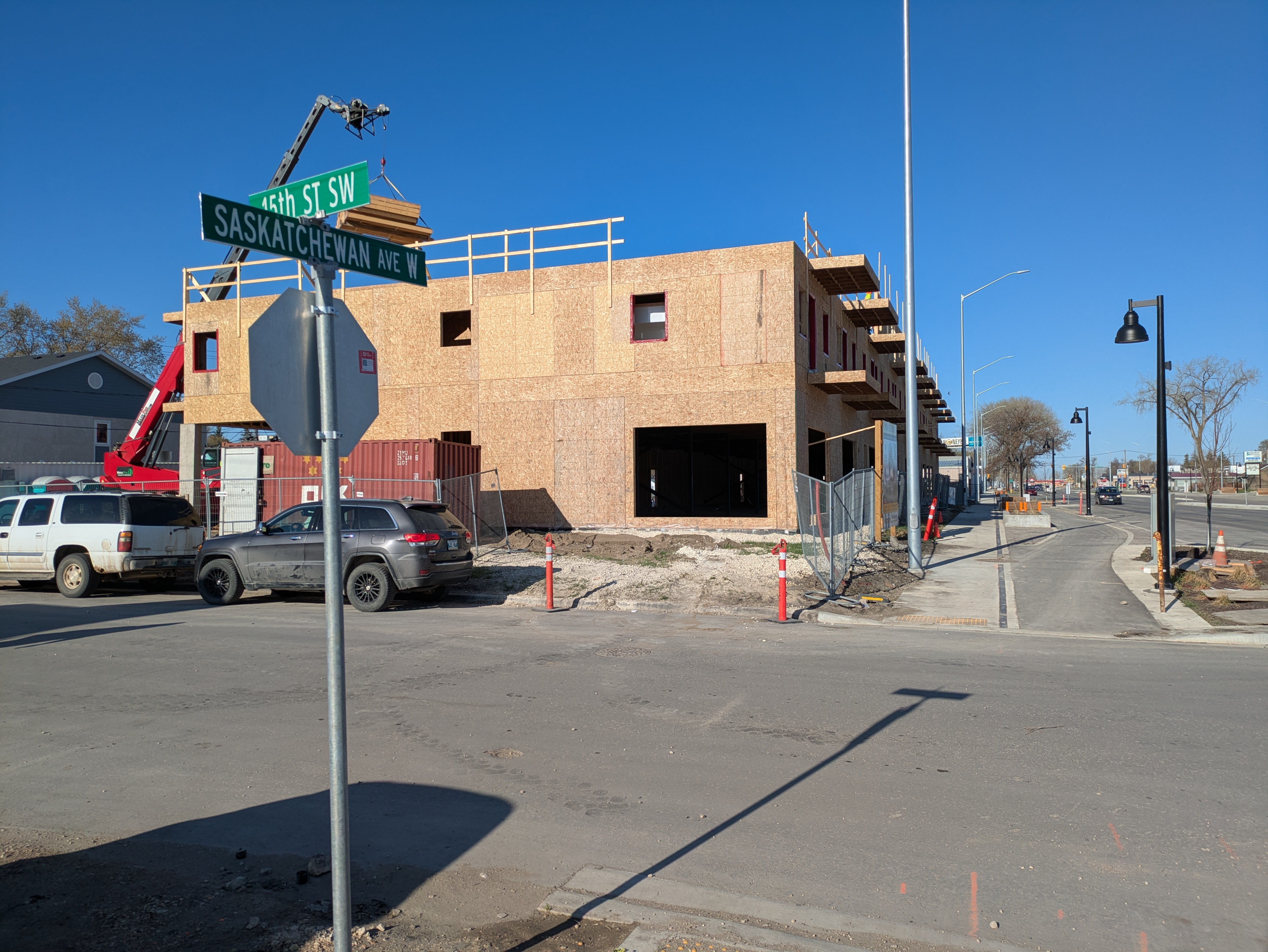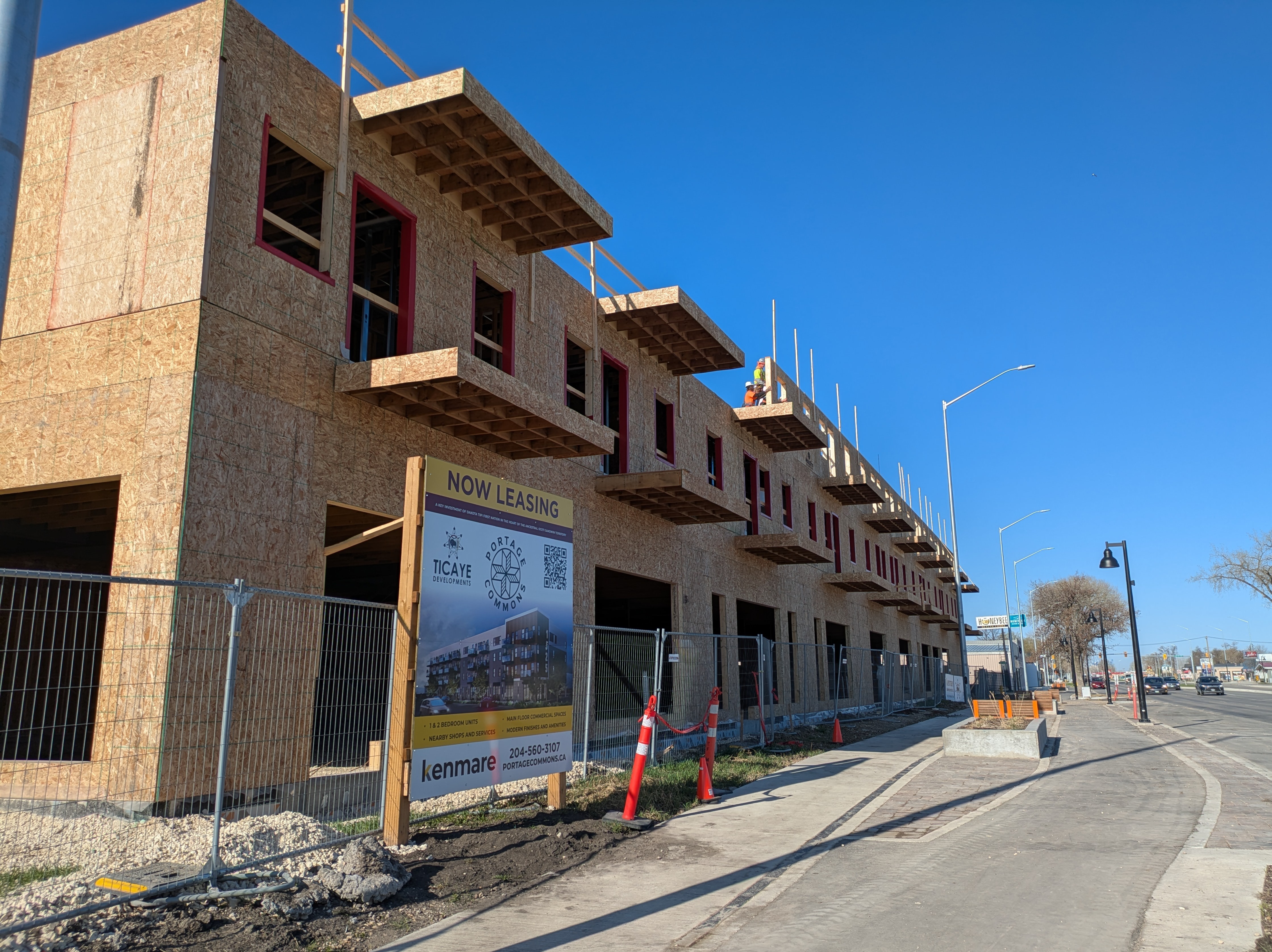Dakota Tipi First Nation Chief Dennis Pashe and development advisor Blake Russell provided updates on a major housing and commercial project underway on Saskatchewan Avenue West in Portage la Prairie. The development, a partnership between Dakota Tipi and Kenmare Developments, includes 54 residential units and 8,700 square feet of retail space, with completion expected this fall.
Affordable housing and commercial growth
Blake Russell notes the project aligns with provincial housing programs, reserving approximately 10 to 11 units as affordable housing.
“Part of the strategy is to make it available to the whole Portage market,” he says. “Depending on the lease-up process, it may be up to 10 units that are affordable. The rest are market units.”
Russell adds the ground-floor commercial space will cater to a range of services.
“It’s perfect. It’s well-positioned right on the street front.”

Construction is ahead of schedule, with leasing already underway.
“The response has been really brisk; people want to know more,” Russell continues. “We’re looking to be completed in the fall.”
Collaboration and community impact
Chief Dennis Pashe emphasizes the significance of partnerships in the project’s progress.
“We’re able to be involved in a fairly big project for us,” he says. “Working with the city, province, and federal government — good things can happen when people want it to happen.”
Discussions are ongoing for additional development near Portage la Prairie’s hospital.
“We’re still in talks with the city,” Pashe adds. “They had to do some due diligence on things they needed clarified.”
Russell explains that the proposed site involves mixed-use plans.
“There was a grocery component, retail space, and supportive services to the hospital campus. Dakota Tipi’s been in preliminary talks to bring forward development partners.” Like the Saskatchewan Avenue project, future developments could blend federal, provincial, and private funding. “For Portage, there’s a real opportunity to have these projects led by an Indigenous community,” he notes.
Addressing housing shortages
Pashe highlights the project’s broader benefits.
“We’re excited to see it completed and people moving in. It will certainly help with some of the housing shortfalls in the city, and maybe on the First Nation, as well.”
Russell concludes optimistically: “It’s the first of many.”
